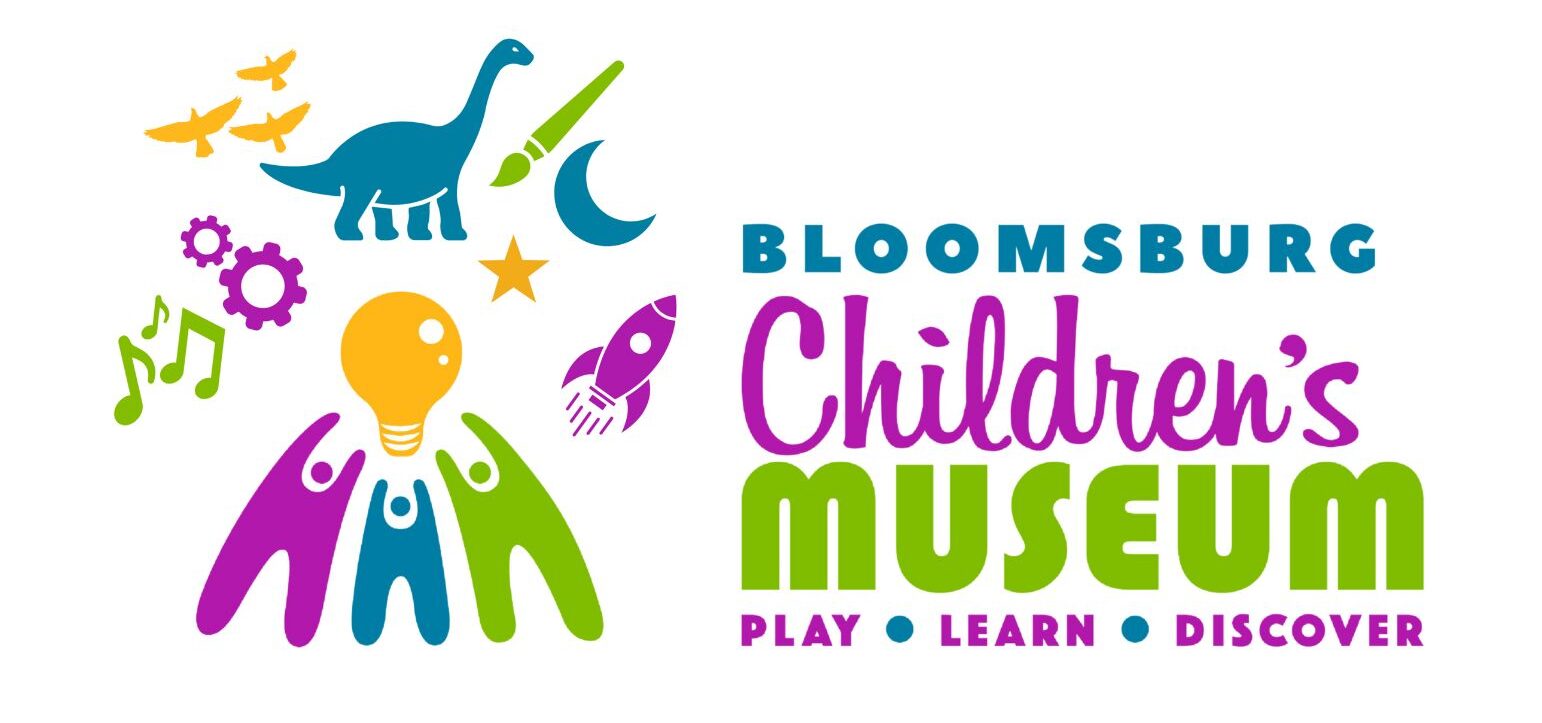Reserve a Kit
The kits are available for 2-week loans. In order to check out a kit, you must place a $50 deposit. Once the kit is returned and all materials are checked in, the deposit is refunded. If your school is signed up with the CSIU mail service, kits can be mailed to a CSIU location at no additional charge and will be returned by the teacher through the same service.
If you are interested in borrowing a kit, please fill out the form through the button below.
Museum on the Go Kits
The Children’s Museum MOGO kit program can be used in conjunction with your classroom, homeschool curriculum, or enrichment. Each kit contains a teacher’s guide and materials for several activities for up to 25 students. MOGO kits contain all materials needed for hands-on activities, including lesson plans and a teacher’s guide.
Astronomy (Earth Science)
This kit offers students an opportunity to explore the world beyond Earth: The sun and nine planets of the solar system, the stars, and the forces that determine these bodies’ positions in space. One of the activities demonstrates the distances between the planets of the solar system.
100 Years Ago at Home (Social Studies)
Includes 16 objects, from a mousetrap to skates to a stereo-option, all from the collection of the Columbia County and Northumberland Historical Societies. Also includes:
- A teacher’s guide with descriptions of each object, methods of presentation, and suggestions for related classroom activities
- Contemporary pictures illustrating life in the 19th century
- Diagrams tracing the evolution of household lighting and weighing
- Books and/or magazines featuring information about the local area
Designed to stimulate your students’ imaginations, this kit will develop an awareness of how life was different 100 years ago, as well as how it was similar to present-day life. In addition, children can explore the role of technology in the development of inventions.
The kit can, if necessary, be presented in one session to older children with the activities scheduled later. However, it may be preferable for younger children to present the kit over several shorter periods in related groups: lighting, cooking, recreation, etc.; this will give them time to absorb and digest the ideas presented.
Blutrack Force and Motion
Specifically designed for classrooms ranging from K-8, this easy-to-use kit is ideal for studying Newton’s Laws of Motion. Determine a starting place, hang the dual-lane track by the hanger pad, and start learning! The flexibility and durability of the track allow for simple or complex experiments that can include loops, curves, hills, ramps, jumps, and coasters. Can test a variety of objects. Easy to set up and takedown. Aligned to the Next Generation Science Standards. Includes 2 full Intro to Force and Motion Kits, 2 18-ft. EP Tracks with hanger system and anchor bar, and 8 additional ramps.
Spark curiosity with this hands-on kit that introduces the basics of electricity. Students explore simple circuits, conductors and insulators, switches, and electromagnets through interactive activities and experiments designed to make abstract concepts come to life.
Energy (Physical Science)
This kit contains 4 activities to help students explore the concepts of energy conservation and energy being stored and released to do work. Students construct a balloon rocket and build a rubber band-powered crawling spool.
LEGO® Simple Machines (Physical Science)
Get your students excited to learn about Simple Machine with LEGO! Using this active learning kit, your students will explore pulleys, levers, gears, wheels, and axles using LEGOeducation Simple Machine kits. Classroom kits can be checked out and include a 20-page teacher’s guide, building cards with step-by-step instructions, pictorial parts list to make cleanup and inventory, photographs of real-world simple machines, suggested problem solutions, and assessment ideas.
LEGO® WeDo Construction (Physical Science)
The LEGO® WeDo™ Construction Kit is a simple robotics tool designed for ages 7+. It allows users to design their own interactive machines and then program them using drag-and-drop software. Included in the kit are a basic package and an advanced build set. Students will be able to build LEGO models featuring working motors and sensors; program their models; and explore a series of cross-curricular, theme-based activities while developing their skills in science, technology, engineering, and mathematics as well as language literacy and social studies. Instruction on the use of the kits is available.
Snap Circuits
Snap Circuits are beloved here at the Museum. Students from elementary school, all the way up to high school, love testing their skills. In each kit, students will have the opportunity to make different circuits with different purposes.
Meteorology (Earth Science)
This kit allows students to investigate the fundamental concepts of weather: the uneven heating of the Earth, changing air pressure, water recycling, and cloud formation. Students will construct a variety of devices and use them to further their understanding of weather prediction.
Primary Magnetism (Physical Science)
Students will use this kit to learn about the basic properties of magnetism using various common objects. They will discover attraction and repulsion and create a magnet from simple materials. Students will learn about the “biggest magnet on earth” and conduct experiments through visual and hands-on learning methods.
Magnetism
In this kit, students will work to complete six different activities centered on magnetism. The kit is best for two or three students per group. The kit will come with a wide array of supplies that will be used to complete the different activities.
Microscopes
In this kit, students will learn to identify and use parts of the microscope, position and move microscope slides on the microscope stage, view and focus magnified objects on microscope slides, learn to handle and care for microscopes slides. This kit is great for students in science that get to see hands-on examples of topics taught in class. The activities in the kit are designed for 24 students working cooperatively in 12 pairs.
Full Option Science System (FOSS) Kits
FOSS is a research-based science curriculum for grades K–8 developed at the Lawrence Hall of Science, University of California at Berkeley. Science is an active enterprise, made active by our human capacity to think. Scientific knowledge advances when scientists observe objects and events, think about how they relate to what is known, test their ideas in logical ways, and generate explanations that integrate the new information into the established order. Thus the scientific enterprise is both what we know (content) and how we come to know it (process). The best way for students to appreciate the scientific enterprise, learn important scientific concepts, and develop the ability to think critically is to actively construct ideas through their own inquiries, investigations, and analyses. The FOSS program was created to engage students in these processes as they explore the natural world.
Variables (Scientific Reasoning & Technology)
Some of the most important scientific concepts students learn result from their ability to see relationships between objects and events. Relationships always involve interactions, dependencies, and cause and effect. This kit has four investigations that help students discover relationships through controlled experimentation. Students will fling, float, fly, and flip objects as they discover relationships in each investigation. They will gain experience with buoyancy, record and graph data using various methods, acquire an understanding of pendulums, and more.
Measurement (Scientific Reasoning & Technology)
Measurement, the process of quantifying observations, is one of the cornerstones of science. Measurement compares nature – the unknown – to a standard unit – the known. Through such comparison, the organization of the world becomes more comprehensive. This kit consists of four investigations, each designed to emphasize a particular type of metric measurement – length, mass, temperature, and volume.
Earth Materials (Earth Science)
This kit consists of four sequential investigations dealing with observable characteristics of solid materials from the earth – rocks, and minerals. The focus is on taking materials apart to find what they are made of and putting materials together to better understand their properties. The module introduces fundamental concepts in earth science and takes advantage of the students’ intrinsic interest in the subject matter and the physical world. Students will gain experience with rocks and minerals, study evaporation, observe the effects vinegar has on calcite, and more.
Solids and Liquids (Physical Science)
This kit provides experiences that heighten students’ awareness of the physical world. The matter with which we interact exists in three fundamental states: solid, liquid, and gas. In this module, first and second graders have introductory experiences with two of these states of matter, solid and liquid. They will explore a number of different liquids, recognize the difference between solids and liquids, observe and investigate and unknown material, and more.
Mixtures & Solutions (Physical Science)
Chemistry is the study of the structure of matter and the changes or transformations within those structures. Learning about the properties and behaviors of substances gives us knowledge about how things go together and how they can be taken apart. Learning about changes in substances can lead to developing new materials and new ways to produce energy. This kit has four investigations that introduce students to fundamental ideas in chemistry. Students will make and separate mixtures, plan and conduct saturation investigations, identify an unknown substance, and more.
Magnetism & Electricity (Physical Science)
This kit consists of five sequential investigations, each designed to introduce or reinforce concepts in physical science. The investigations allow students to explore the natural and human-made worlds by observing and manipulating materials in focused settings using simple tools. Students will learn about attraction and repulsion, conductors and insulators, make an electromagnet and a telegraph, and more.



